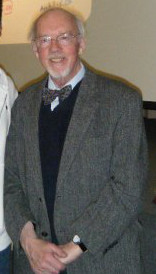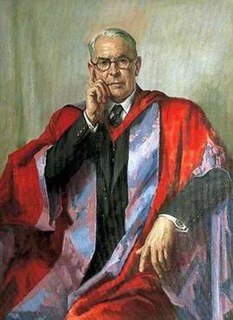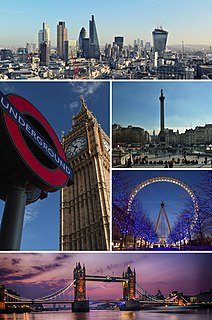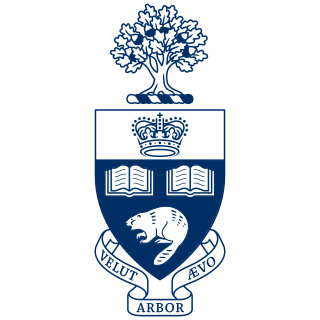
Sir George Howard Darwin, was an English barrister and astronomer, the second son and fifth child of Charles Darwin and Emma Darwin.

Sir Thomas Barlow, 1st Baronet, was a British royal physician, known for his research on infantile scurvy.
Professor Sir Alan Geoffrey Wilson FAcSS is a British mathematician and social scientist, former Vice-Chancellor of the University of Leeds and a professor at University College London.

(Alexander) Philip Dawid is Emeritus Professor of Statistics of the University of Cambridge, and a Fellow of Darwin College, Cambridge. He is a leading proponent of Bayesian statistics.
The Academy of Medical Sciences is an organisation established in the UK in 1998. It is one of the four UK National Academies, the others being the British Academy, the Royal Academy of Engineering and the Royal Society.
Michael James Paul Arthur FMedSci is the tenth Provost and President of University College London, having replaced Sir Malcolm Grant in September 2013.
Sir Arnold Stanley Vincent Burgen, FRS is a retired British physician, pharmacologist, academic and university administrator. He was Master of Darwin College, Cambridge from 1982-89, Deputy Vice-Chancellor of The University of Cambridge from 1985–89, and founding President of the Academia Europæa.

Sir Hans Leo Kornberg, FRS is a German-born British biochemist. He was Sir William Dunn Professor of Biochemistry in the University of Cambridge from 1975 to 1995, and Master of Christ's College, Cambridge from 1982 to 1995.
Albert Neuberger was Professor of Chemical Pathology, St Mary's Hospital, 1955–1973, and later Emeritus Professor.
Sir Kurt George Matthew Mayer Alberti, is a British doctor. His long-standing special interest is diabetes mellitus, in connection with which he has published many research papers and served on many national and international committees. In the 1970's, Alberti published recommendations for the management of diabetic ketoacidosis, a serious metabolic emergency which affects people suffering from severe insulin deficiency. This 'Alberti regime' rationalised the use of insulin and fluid therapy in this condition to the undoubted benefit of many patients.
Sir David Keith Peters is a retired Welsh physician and academic. He was Regius Professor of Physic at the University of Cambridge from 1987 to 2005, where he was also head of the School of Clinical Medicine.
Sir Philip Cohen FRS FRSE FMedSci is a British researcher, academic and Royal Medal winner based at the Medical Research Council Protein Phosphorylation and Ubiquitylation Unit, School of Life Sciences at the University of Dundee. During the 1990s he was the world's third most cited professor and has been described by Professor Garry Taylor of the University of St Andrews as "one of the world’s top scientists". and by Professor Sir Peter Downes as "arguably the UK's leading biochemist and an iconic figure in UK science". As of 2008 he has written over 470 peer-reviewed papers and given over 250 invited lectures in 33 countries, and has been repeatedly linked to a move of biotechnology companies to Dundee and the economic regeneration that came with it, to the point where 15% of the local economy is derived from biotech companies and their employees. His work has also seen Dundee attracting some of the world's best scientists, with over 1% of the world's most cited scientists residing in Dundee and fundraising of more than £35 million over the last 10 years to help attract them.

Sir Christopher Martin Dobson, FRS, FMedSci is a British chemist, who is the John Humphrey Plummer Professor of Chemical and Structural Biology in the Department of Chemistry at the University of Cambridge, and Master of St John's College, Cambridge.
Hon. Richard Tedder FRCP is an English virologist and microbiologist, was head of the Department of Virology at the University College London Medical School, now works as virologist at Public Health England
Professor Ralph Ambrose Kekwick. was a British biochemist who did pioneering work on human plasma fractionation, including the first production of Factor VIII.
Ian Jacobs is a British academic, medical doctor, gynaecological oncologist and researcher. He began as the ninth president and vice-chancellor of the University of New South Wales in February 2015.

Sir Alan Aird Moncrief was a British born paediatrician and professor emeritus at University of London. He was most notable for developing the first premature-baby unit in 1947. It was Moncrief who recognised and developed the concept of daily parental visits to the ward, which he developed while at Great Ormond Street, well before the need for this became recognised, and with his ward sister, published an article on Hospital Visiting for Children in 1949.
Charles Nicholas "Nick" Hales (1935–2005) was an English physician, biochemist, diabetologist, pathologist, and professor of clinical biochemistry















